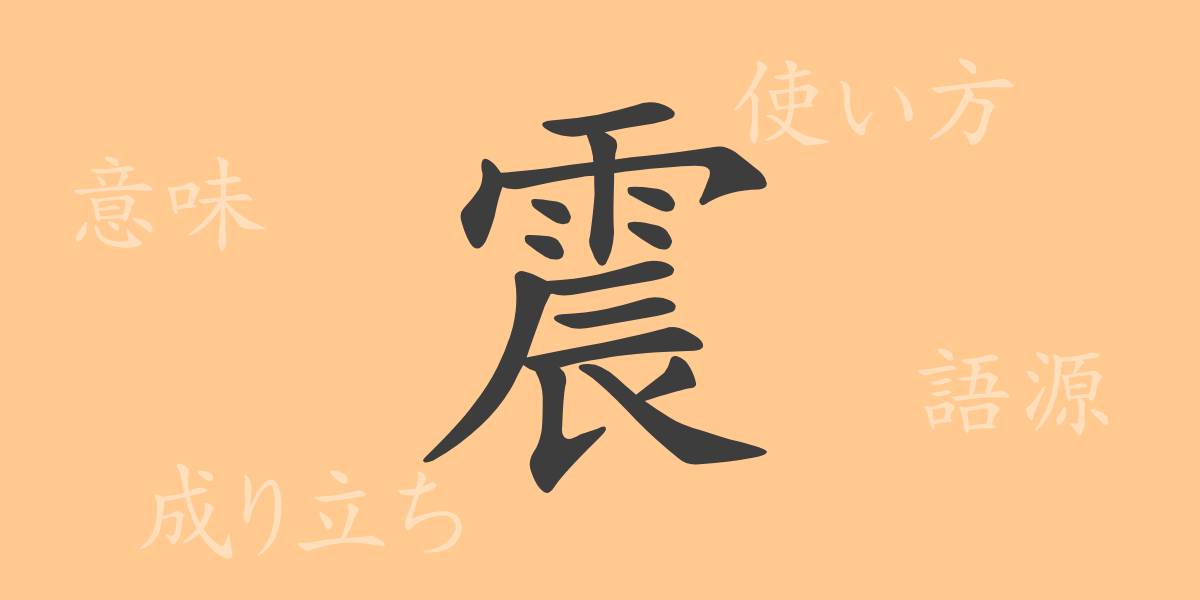Japanese is enriched with characters that vividly express emotions and the forces of nature, among which ‘震’ (しん) plays a significant role. This article explores the Kanji ‘震’, delving into its meanings, origins, and how it is used in idioms and proverbs, shedding light on its significance in daily life.
Origins of 震 (しん)
The Kanji ‘震’ traces back to ancient Chinese oracle bone scripts, symbolizing the trembling of the earth by thunder. Its upper part represents rain (‘雨’), while the lower part evolved from ‘辰’, illustrating the earth-shaking force. This character vividly represents natural phenomena, deeply intertwined with ancient worldviews.
Meaning and Usage of 震
‘震’ primarily denotes shaking or trembling movements, as seen in ‘地震’ (earthquake) and ‘震える’ (to tremble), covering both physical and emotional tremors. It is also used metaphorically in phrases like ‘国を震撼させる’ (to shake the country), signifying strong impacts or shocks.
Readings, Stroke Count, and Radical of 震
The Kanji ‘震’ is a common character in Japanese, taught widely in schools:
- Readings: On’yomi ‘シン’, Kun’yomi ‘ふるう’, ‘ふるえる’
- Stroke Count: 15
- Radical: ‘雨’ (rain)
Phrases, Idioms, and Proverbs Using 震
Many idioms and proverbs include ‘震’, reflecting its significance in the Japanese language:
- 地震 (じしん): Refers to the natural phenomenon of an earthquake.
- 震える (ふるえる): Describes trembling due to cold or fear.
- 震撼 (しんかん): Describes a situation where the heart or society is greatly moved.
- 驚天動地 (きょうてんどうち): A phrase meaning an event or change so dramatic it could ‘shake heaven and earth’.
- 震災 (しんさい): Refers to disasters caused by earthquakes.
These expressions highlight the importance of ‘震’ in Japanese, continuing to hold deep meanings within the culture and language.
Conclusion on 震
The Kanji ‘震’ captures the essence of nature’s power and human emotions, utilized in a variety of expressive ways. From its historical roots to its use in everyday language, ‘震’ symbolizes various world-shaking phenomena. Understanding this character enriches our appreciation of the depth of Japanese language and its intimate connection with nature and human sentiment.

























